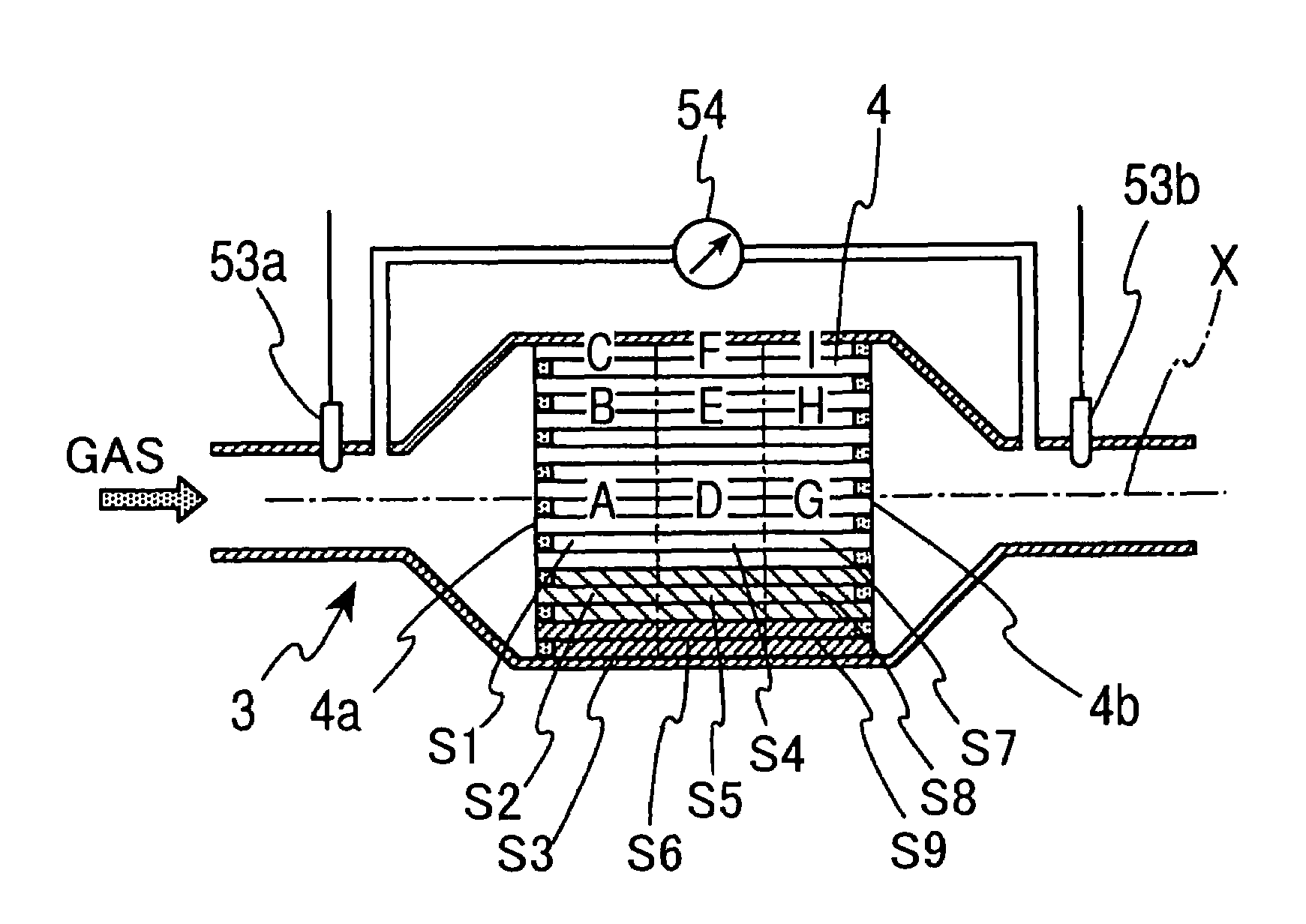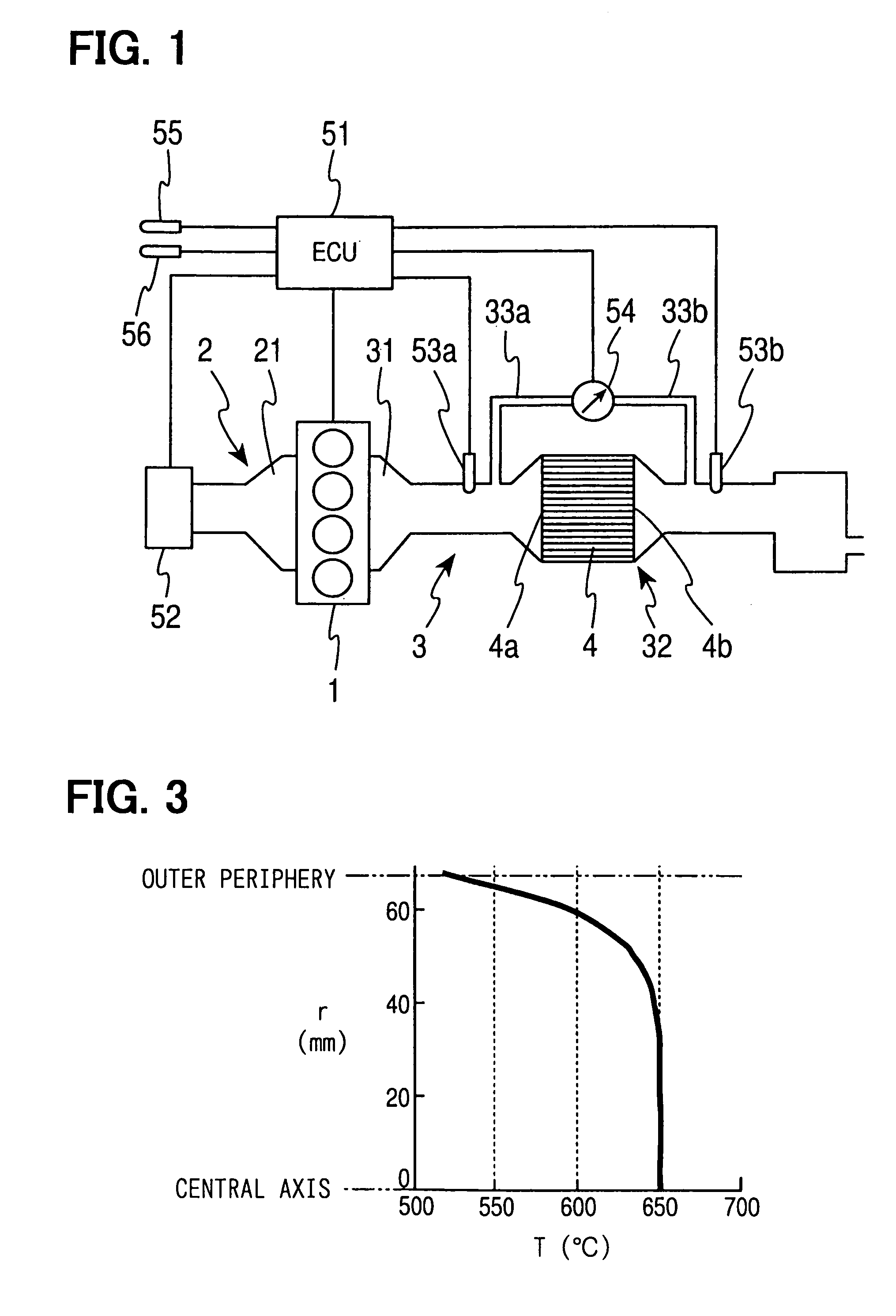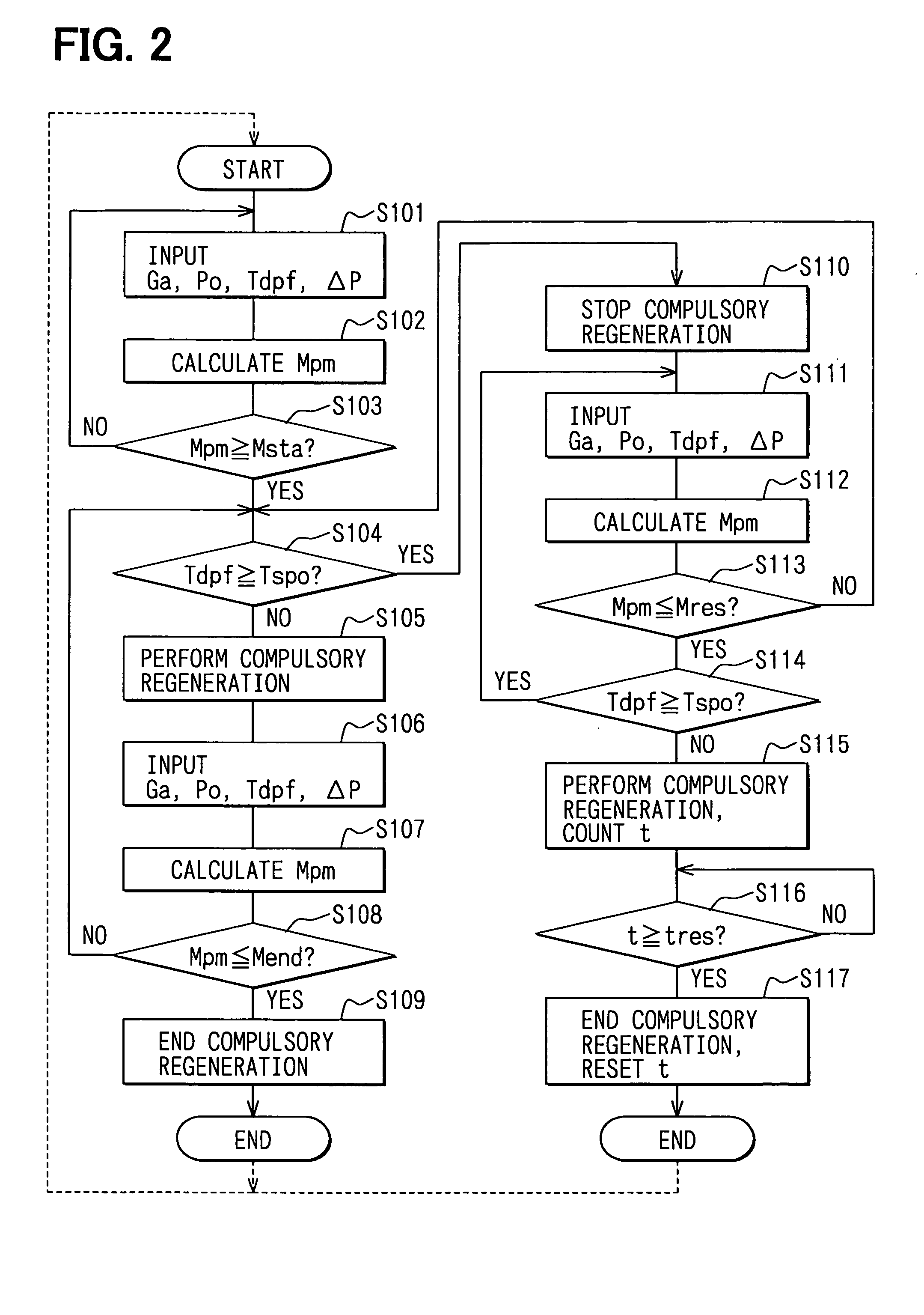Exhaust gas purification system of internal combustion engine
a technology of exhaust gas purification system and internal combustion engine, which is applied in the direction of machines/engines, exhaust treatment electric control, separation processes, etc., can solve the problems of increased back pressure of engine, and increased flow resistance of particulate filter, so as to prevent excessive accumulation of deposition quantity, and effectively prevent the effect of partial rapid combustion in the particulate filter
- Summary
- Abstract
- Description
- Claims
- Application Information
AI Technical Summary
Benefits of technology
Problems solved by technology
Method used
Image
Examples
first embodiment
[0030]Referring to FIG. 1, a diesel engine according to a first embodiment of the present invention is illustrated.
[0031]An engine main body 1 of the diesel engine shown in FIG. 1 is equipped with four cylinders. The engine main body 1 is connected with an intake manifold 21 as the most downstream portion of an intake passage 2 and with an exhaust manifold 31 as the most upstream portion of an exhaust passage 3. The exhaust passage 3 is connected with a particulate filter (a diesel particulate filter: DPF) 32 at a gathering portion of the exhaust manifold 31. A main body 4 of the particulate filter 32 is a honeycomb structure, which is made of a porous ceramic such as cordierite or silicon carbide and is formed in the shape of a circular column. An opening of each passage of the honeycomb structure is blocked on an end side thereof in an axial direction. Exhaust gas discharged from the cylinders of the engine main body 1 enters the DPF main body 4 through an inlet 4a, which opens in...
second embodiment
[0061]Next, steps of control performed by an ECU 51 of an exhaust gas purification system of an internal combustion engine according to a second embodiment will be explained based on a flowchart shown in FIG. 7.
[0062]The ECU 51 calculates the PM deposition quantity Mdpf like the first embodiment. If the PM deposition quantity Mdpf exceeds the regeneration start PM quantity Msta, the compulsory regeneration is started. The compulsory regeneration is continued until the PM deposition quantity Mpm decreases to the regeneration end PM quantity Mend except in a period in which the DPF temperature Tdpf is equal to or higher than the PM spontaneous regeneration temperature Tspo.
[0063]In Step S201 of the flowchart of FIG. 7, the intake air quantity Ga, the atmospheric pressure P0, the exhaust gas temperature Tdpf, an ambient temperature Ta and the DPF pressure loss ΔP are inputted.
[0064]Then, in Step S202, a temperature distribution in the DPF 32 is calculated based on the inputted exhaust ...
third embodiment
[0080]Next, control steps performed by an ECU 51 of an exhaust gas purification system of an internal combustion engine according to a third embodiment of the present invention will be explained based on FIG. 10.
[0081]In Step S301, the intake air quantity Ga, the atmospheric pressure P0, the DPF temperature Tdpf, the ambient temperature Ta, and the DPF pressure loss ΔP are inputted as in Step S201 of the second embodiment. Then, in Step S302, the temperatures A-I in the respective spaces S1-S9 are calculated as in Step S202 of the second embodiment. Then, the combustion speeds Cpm in the respective spaces S1-S9 are calculated as in Step S203 of the second embodiment.
[0082]In Step S304, the PM deposition quantities mpm of the respective spaces S1-S9 of the DPF 32 are calculated and the maximum value among the PM deposition quantities mpm is selected as a maximum deposition portion PM deposition quantity mpm(max).
[0083]In Step S305, the maximum deposition portion PM deposition quantit...
PUM
| Property | Measurement | Unit |
|---|---|---|
| speed | aaaaa | aaaaa |
| temperature | aaaaa | aaaaa |
| deposition quantity | aaaaa | aaaaa |
Abstract
Description
Claims
Application Information
 Login to View More
Login to View More - R&D
- Intellectual Property
- Life Sciences
- Materials
- Tech Scout
- Unparalleled Data Quality
- Higher Quality Content
- 60% Fewer Hallucinations
Browse by: Latest US Patents, China's latest patents, Technical Efficacy Thesaurus, Application Domain, Technology Topic, Popular Technical Reports.
© 2025 PatSnap. All rights reserved.Legal|Privacy policy|Modern Slavery Act Transparency Statement|Sitemap|About US| Contact US: help@patsnap.com



